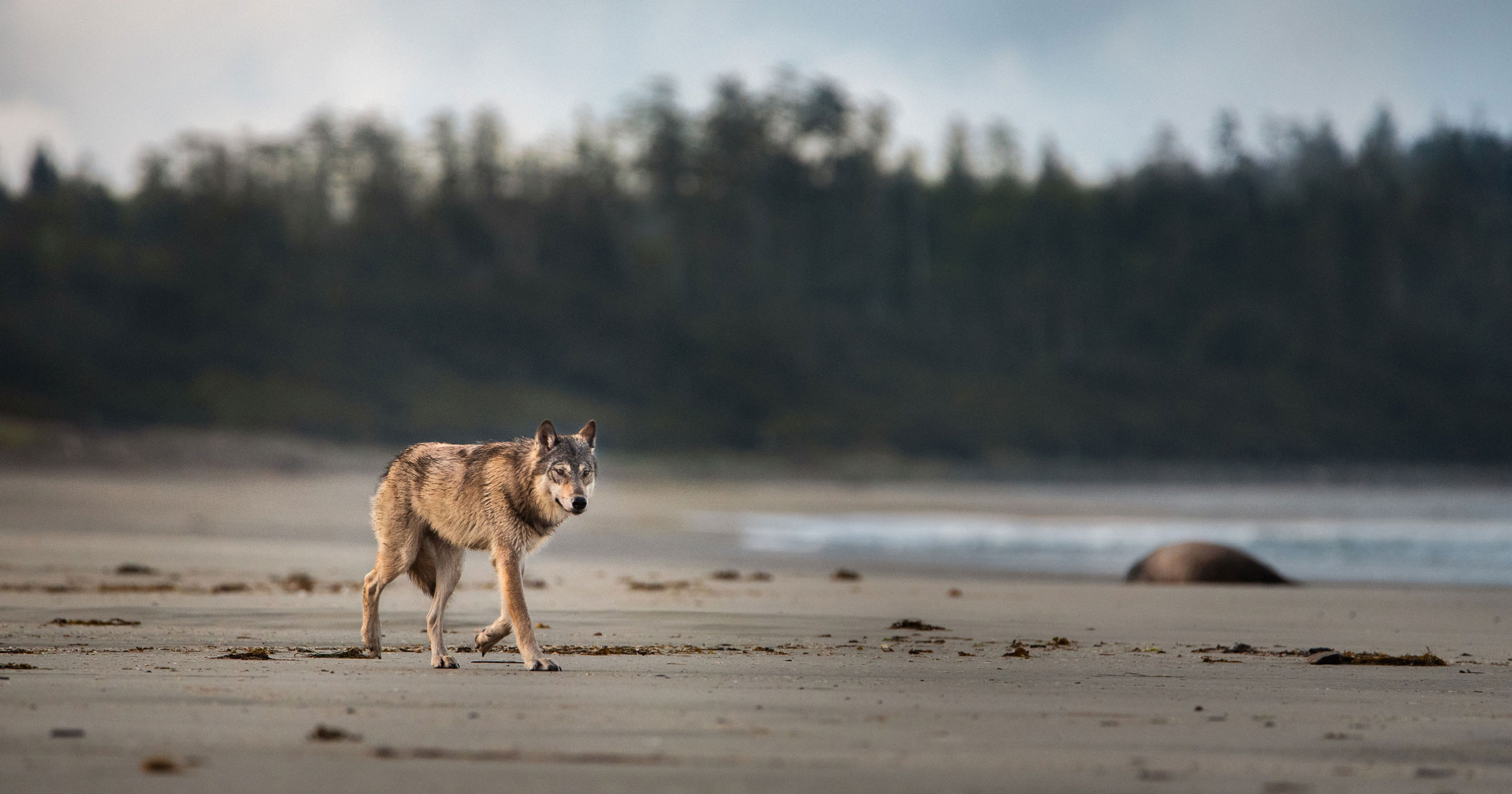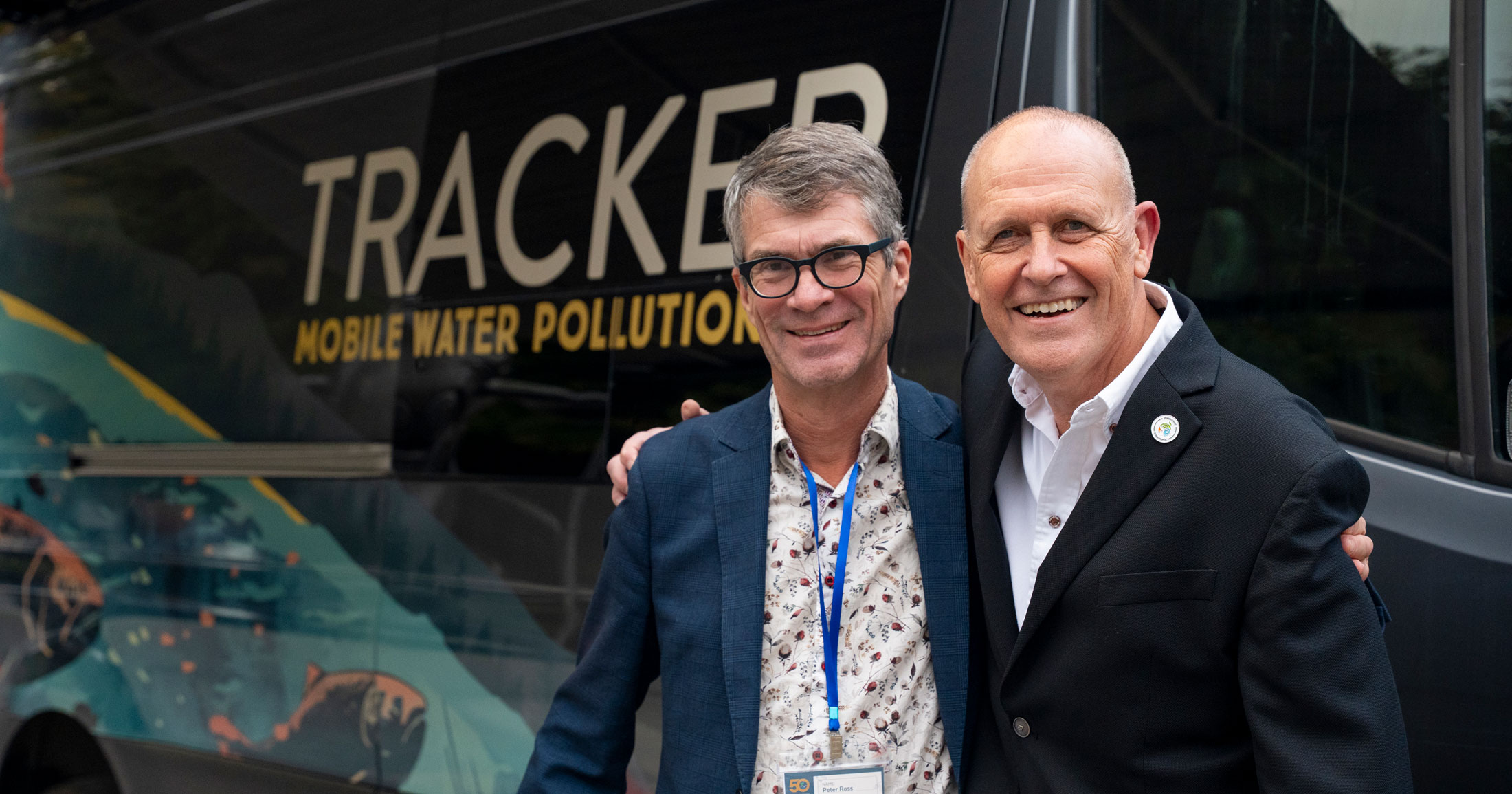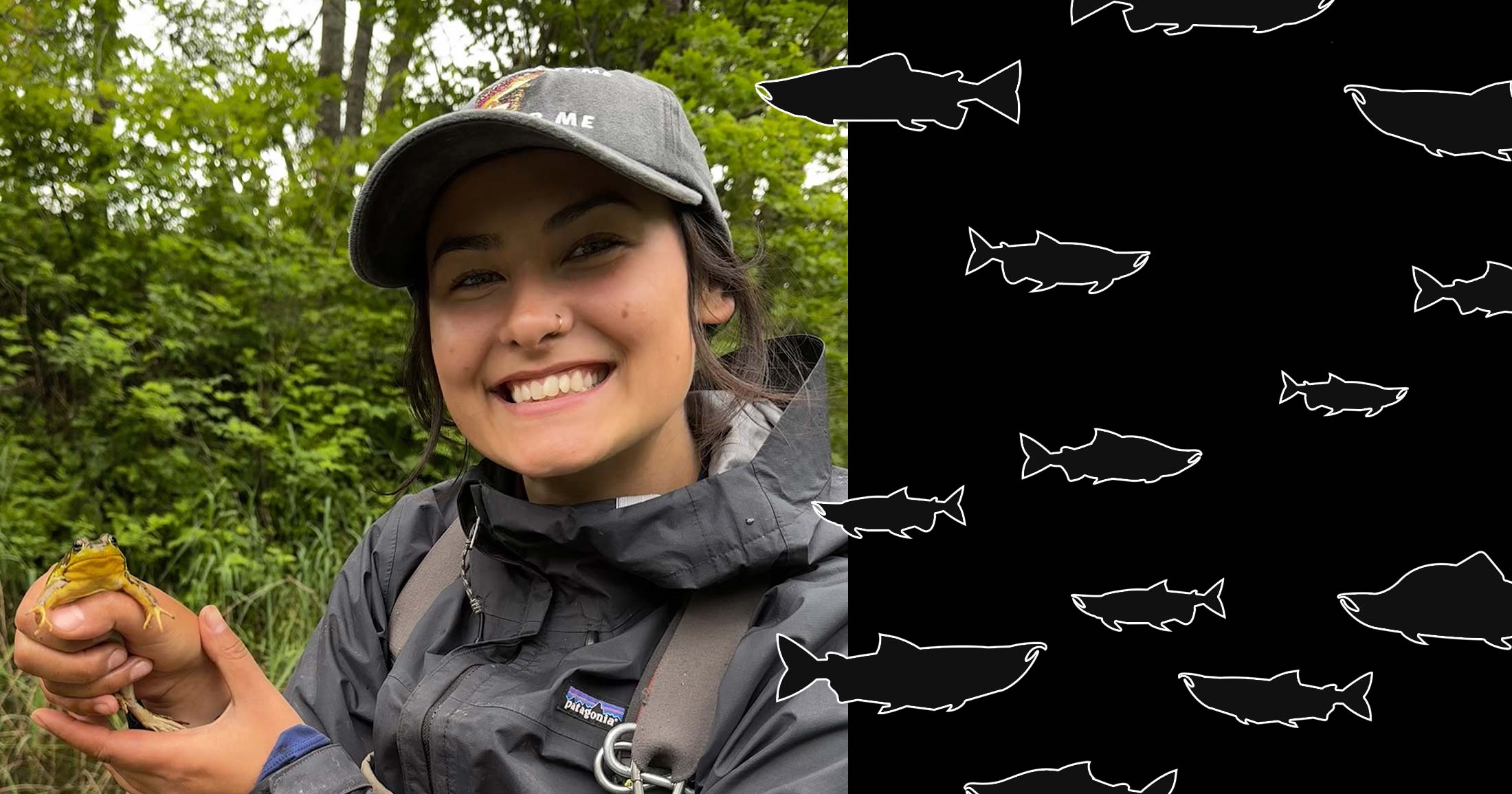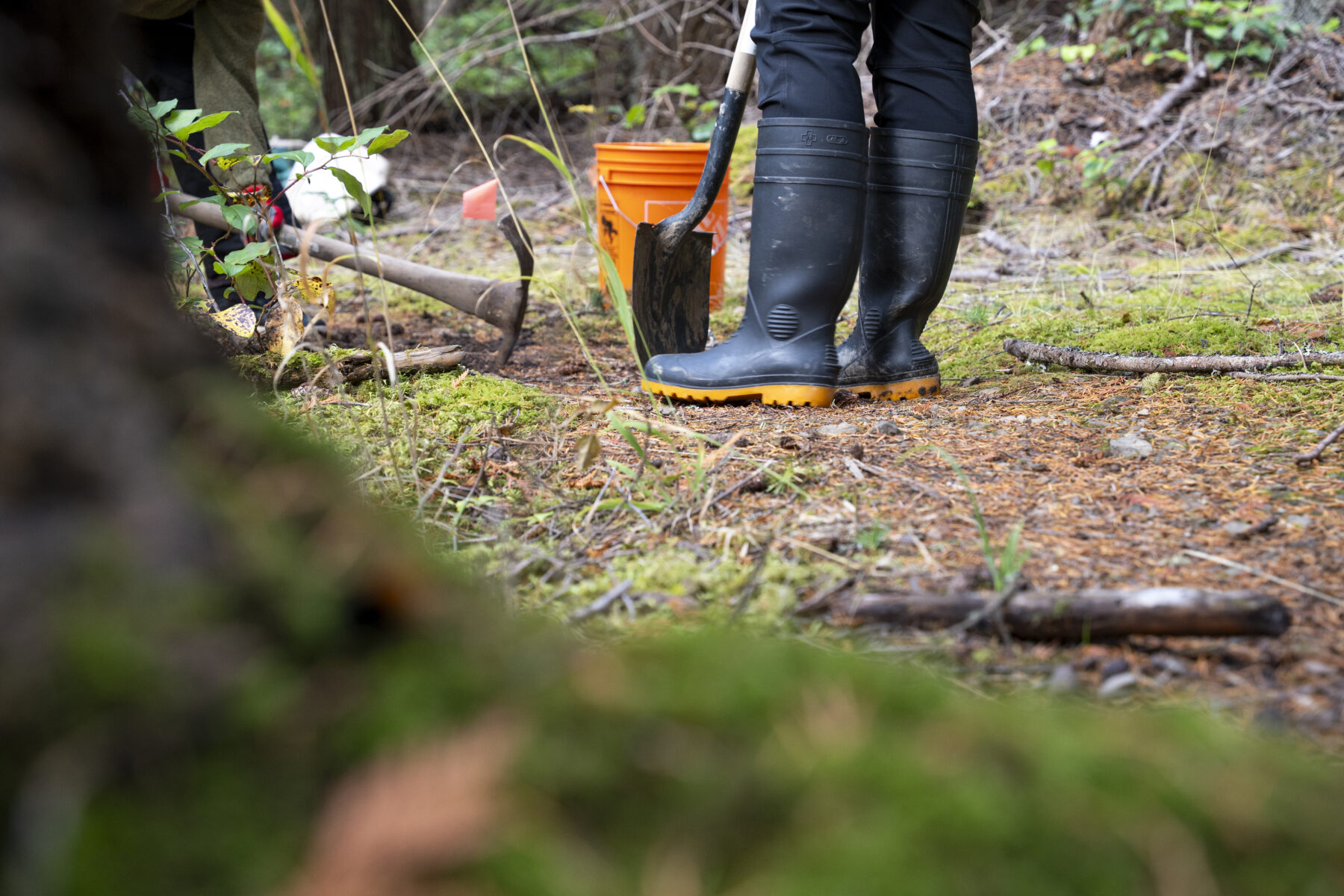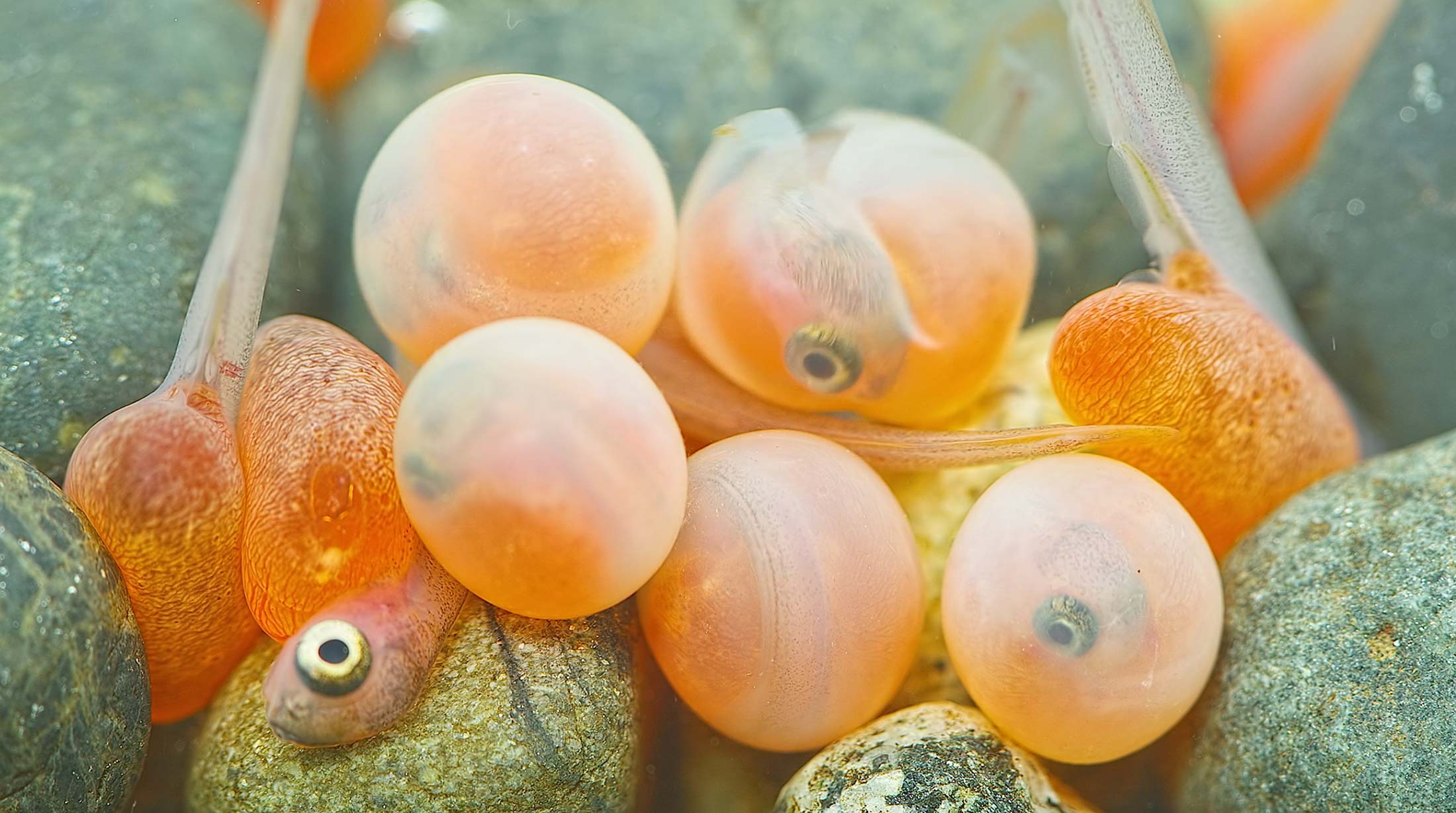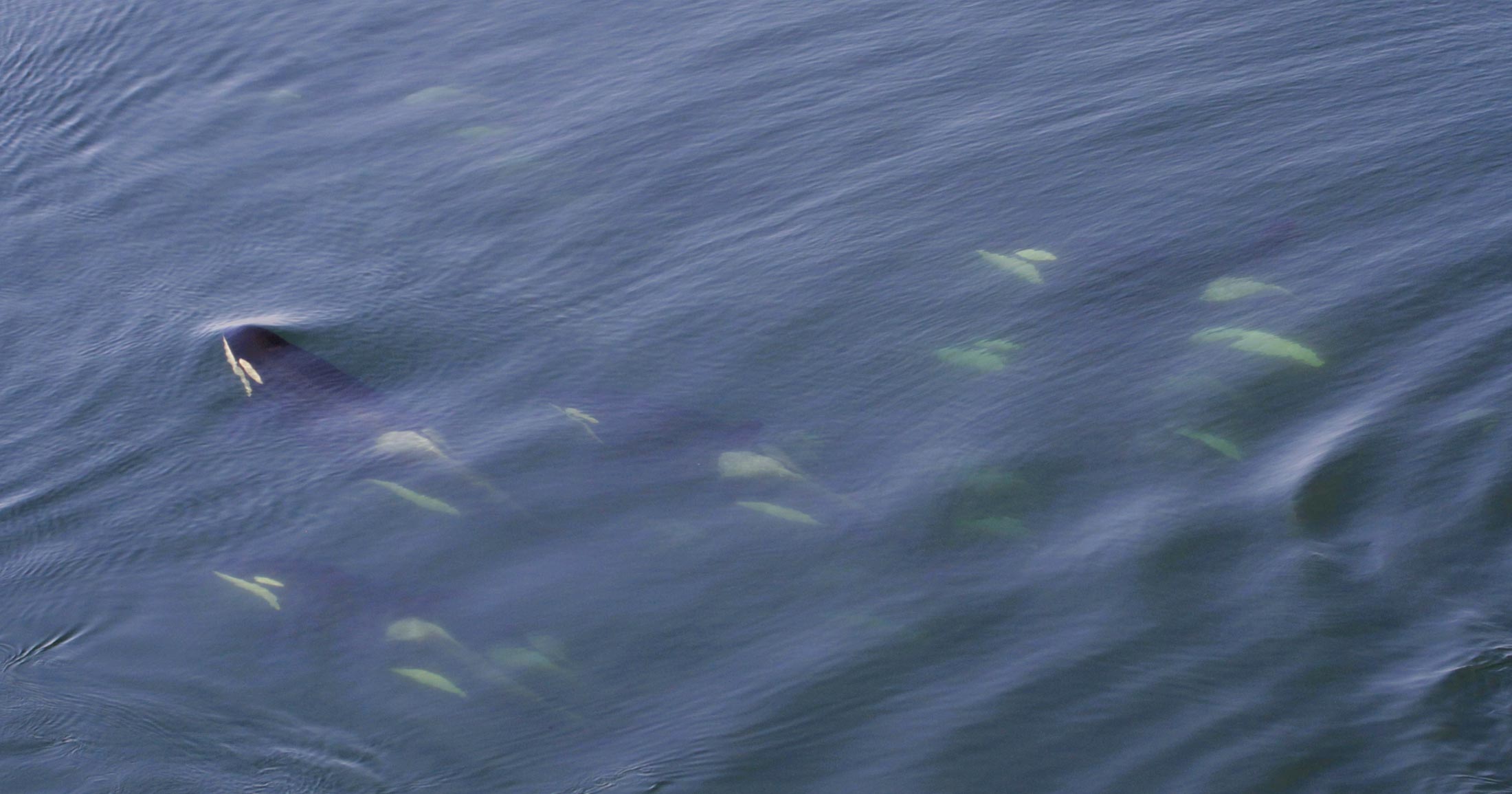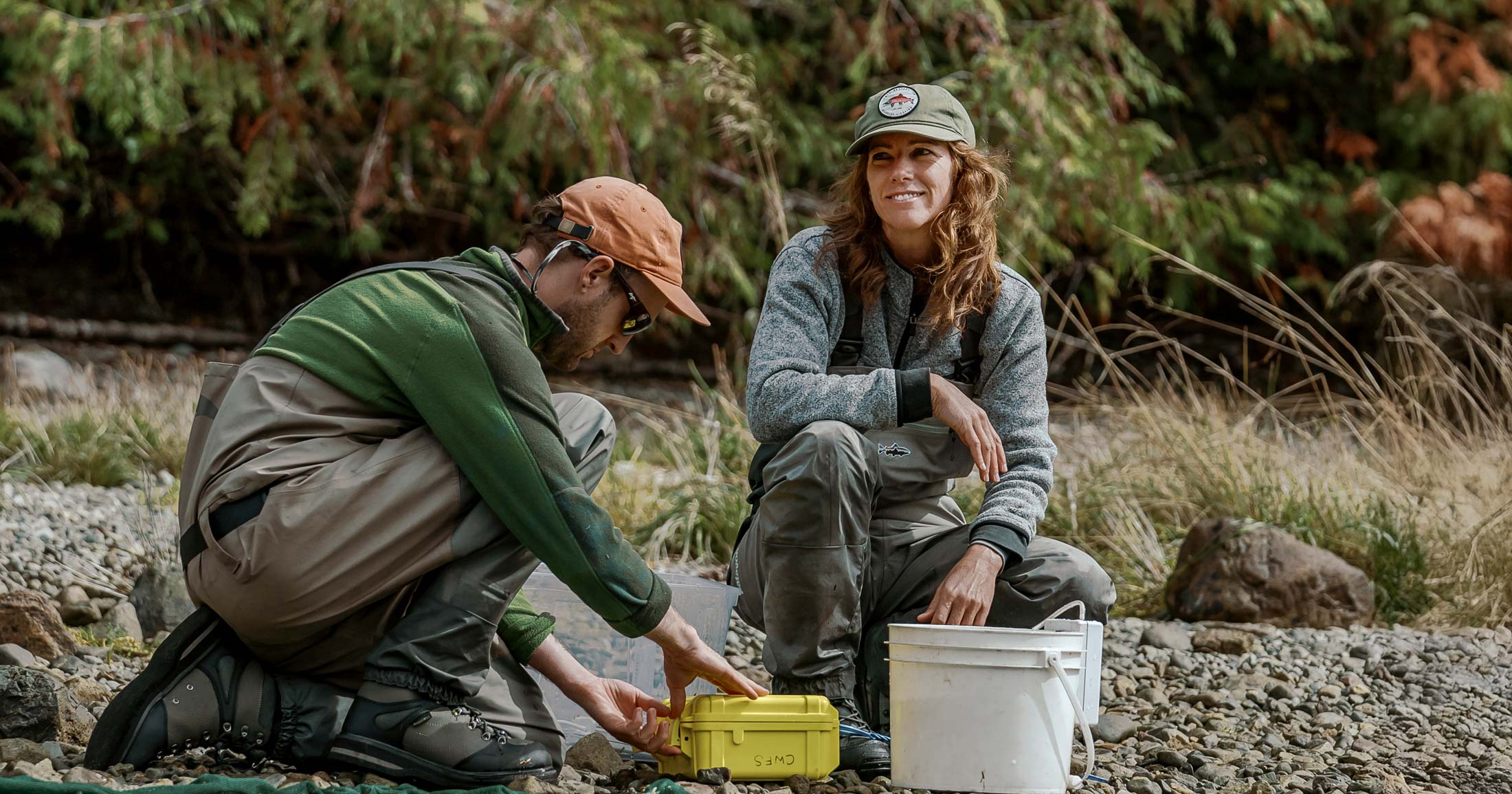Together, let’s rewrite the story of wolves in BC
Protecting wolves is about more than one species—it’s about protecting ecosystems.
Wolves are vital to the health and balance of ecosystems across British Columbia. As top predators, they help regulate the health of prey populations, influence animal behaviour and habitat use, and maintain the diversity and resilience of plant and animal communities. Their presence signals a thriving, functioning ecosystem—making them an umbrella species: when we protect wolves and their habitats, we safeguard countless other species that share those same landscapes.12
This Wolf Awareness Week, we’re celebrating the progress and partnerships that drive our wolf conservation efforts forward. Through the Wolf Program, Raincoast and our First Nations partners continue to advance research and conservation efforts that prioritize coexistence, ethical wildlife monitoring, and the protection of critical habitats.
Over the past year, our team has been working diligently to expand monitoring efforts across key watersheds on the South Coast, employing minimally invasive approaches such as camera traps, acoustic recorders, and scat analysis to deepen our understanding of wolf ecology and welfare needs. These tools help us study habitat use, pack dynamics, and dietary patterns—without disturbing the animals we work to protect. With the support of our partners, this research also informs habitat protection measures and strengthens First Nations-led monitoring frameworks, thereby sustaining long-term stewardship across territories.
Wolves continue to face challenges in British Columbia, including habitat loss, hunting persecution, and government-sanctioned culls. Yet, every advance in wolf research, education, and advocacy brings us closer to a future where wolves are respected as integral members of healthy ecosystems—not scapegoated or misunderstood.3
Here at Raincoast, as we mark Wolf Awareness Week, we’re reminded that protecting wolves is about more than one species—it’s about protecting ecosystems. By standing up for wolves, we stand up for the biodiversity, balance, and betterment of the wild places we all depend on.4
To do this, we need your voices, action, and support. Whether it’s challenging outdated narratives or advocating for change, everyone can help rewrite the story of wolves in BC. One simple way you can help is to join your voice to ours by subscribing to our newsletter. By joining, you help us grow our reach and influence to create lasting change for wolves and the ecosystems they support.
Here are a few other ways you can get involved
- Learn more about wolves and their vital ecological roles through our educational resources:
- Of Wolves and Women: Podcast
- Wolf School: Webinar Series
- Wolf Stories: Article Series
- Peer-reviewed papers and reports co-authored by Raincoast scientists
- Share our message with your community to help shift public perception and promote coexistence
- Support our work by making a donation to advance wolf research, outreach, and conservation
Notes and references
- Hoeks S, Huijbregts MAJ, Busana M, Harfoot MBJ, Svenning J, Santini L. 2020. Mechanistic insights into the role of large carnivores for ecosystem structure and functioning. Ecography. 43(12):1752–1763. doi:https://doi.org/10.1111/ecog.05191.
- Ripple WJ, Estes JA, Beschta RL, Wilmers CC, Ritchie EG, Hebblewhite M, Berger J, Elmhagen B, Letnic M, Nelson MP, et al. 2014. Status and Ecological Effects of the World’s Largest Carnivores. Science. 343(6167):1241484–1241484. doi:https://doi.org/10.1126/science.1241484.
- Read more: “Letter in Science states that Canada’s wolf cull subsidizes industry “.
- Winnie J, Creel S. 2017. The many effects of carnivores on their prey and their implications for trophic cascades, and ecosystem structure and function. Food Webs. 12:88–94. doi:https://doi.org/10.1016/j.fooweb.2016.09.002.
You can help
Raincoast’s in-house scientists, collaborating graduate students, postdoctoral fellows, and professors make us unique among conservation groups. We work with First Nations, academic institutions, government, and other NGOs to build support and inform decisions that protect aquatic and terrestrial ecosystems, and the wildlife that depend on them. We conduct ethically applied, process-oriented, and hypothesis-driven research that has immediate and relevant utility for conservation deliberations and the collective body of scientific knowledge.
We investigate to understand coastal species and processes. We inform by bringing science to decision-makers and communities. We inspire action to protect wildlife and wildlife habitats.


